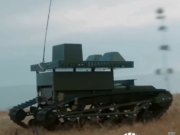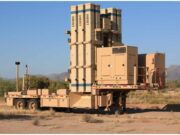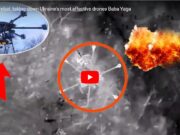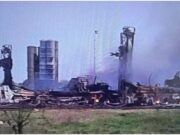Israel launched an attack on southern Lebanon on July 3, resulting in the death of one of Hezbollah’s top commanders.
Commander Assassinated, Hezbollah Retaliates Hezbollah announced that a senior commander was killed in an Israeli attack in southern Lebanon on July 3, as reported by Al Jazeera. This marks the third high-ranking official of the group killed in nearly nine months of cross-border conflict between Israel and Lebanon, raising concerns about a broader escalation of the conflict in the region.
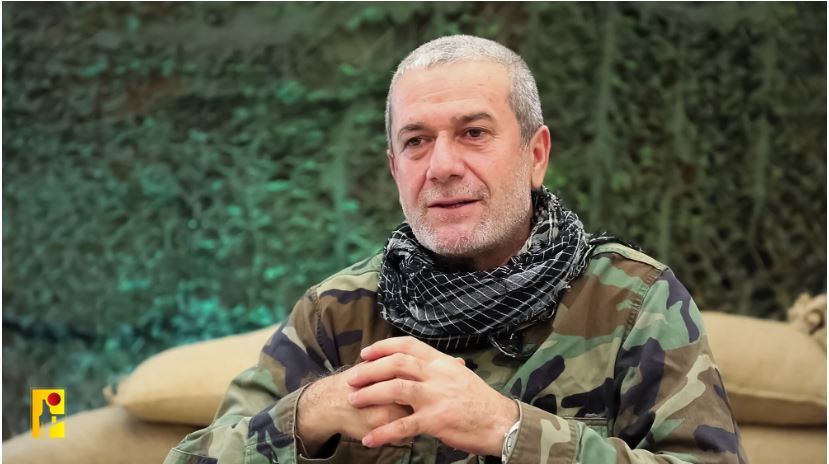
On July 4, Hezbollah announced that Muhammad Nimah Nasser, also known as “Hajj Abu Naameh” was killed the previous day. Immediately after, the group claimed to have launched at least two attacks in retaliation for the “assassination,” stating that they fired 100 Katyusha rockets at Israeli military bases and Iran-made Falaq missiles at another base in the town of Kiryat Shmona near the Israel-Lebanon border.
Israel’s Channel 12 reported that dozens of rockets were fired into northern Israel from Lebanon. No casualties were reported. The Israeli Defense Ministry stated that air raid sirens were activated in several areas in northern Israel.
The report also mentioned that while there were no casualties, firefighters were working to extinguish several fires caused by the rocket attacks.
Following Hezbollah’s rocket barrage, Israeli fighter jets attacked a Hezbollah rocket launcher that had been used to fire the barrage of rockets at Israel.
How Did the Hezbollah Commander Die? Hezbollah’s announcement on Telegram about Commander Nasser’s death did not specify the location, but an earlier source told Al Jazeera that a commander was killed in the Hosh area of southern Lebanon.
Meanwhile, Lebanon’s national news agency reported that “an Israeli drone targeted a car” in the city of Tyre, about 20 km from the Israeli border. A source told AFP that a Hezbollah soldier and a civilian were also killed in the drone strike targeting Nasser.
Nasser held the same rank as Taleb Abdallah, a senior commander killed in an Israeli attack in June. At that time, Commander Abdallah was the highest-ranking military official of Hezbollah to be killed since the group began its conflict with Israel on October 8, 2023, in response to Tel Aviv’s bombing of Gaza. After Abdallah’s death, Hezbollah launched one of its largest rocket attacks on northern Israel.
The Israeli military confirmed targeting Nasser, stating that he was responsible for “rocket fire from southwest Lebanon by Hezbollah.”
The Israeli military claimed that Nasser and Abdallah were two of the most important figures in Hezbollah in southern Lebanon.
Risk of Escalating Tensions in the Region Israeli Defense Minister Yoav Gallant stated after the attack on the Hezbollah commander that Israeli forces are attacking Hezbollah “very fiercely every day” and will be ready to take any necessary action against the group, although Tel Aviv prefers to achieve an agreement through negotiations.
The latest attacks come amid increasing clashes between Israel and Hezbollah and heated rhetoric from both sides, prompting American, European, and Arab mediators to rush to prevent a broader escalation in the region.
Hezbollah leader Hassan Nasrallah stated that the group is prepared for a “no-holds-barred, lawless, and unlimited” war should Israel launch a major attack on Lebanon.
Meanwhile, Iran’s mission to the United Nations warned Israel that armed groups supported by Tehran would intervene if Tel Aviv attacked Hezbollah forces in Lebanon.
“Iran considers Israel’s declared intention to attack Lebanon as mere psychological warfare, but if it conducts a full-scale attack on Lebanon, a devastating war will ensue,” Iran’s mission to the United Nations posted on social media platform X on June 29.
Hezbollah’s deputy leader, Sheikh Naim Kassem, stated on July 2 that the only way to prevent escalation on the Israel-Lebanon border is for Israel to cease its operations in Gaza, a stance the group has maintained since the conflict began.



